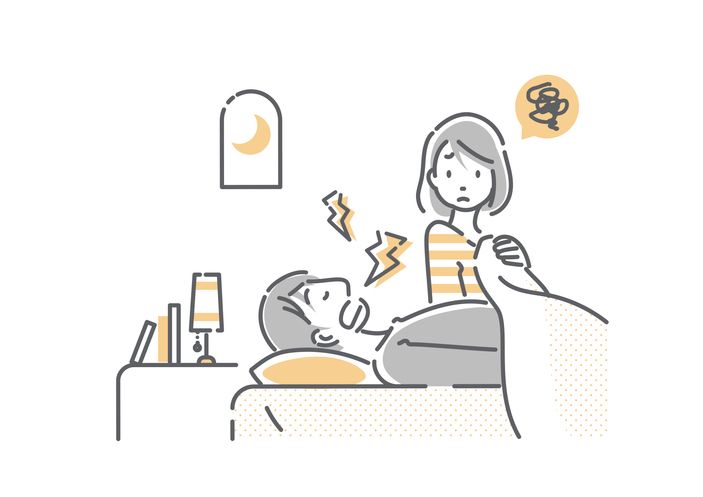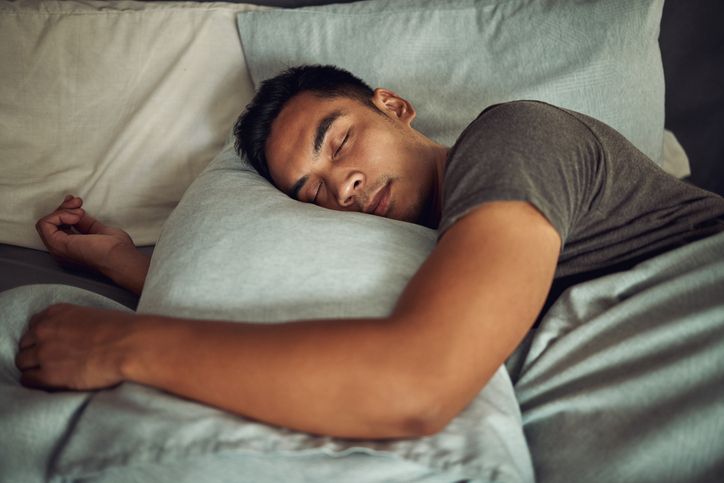- Home
- Trend
- Weight Loss Strategies
- Acne Tips
- Hair Health Information
- Blemish Removal Tips
- Acne Scar Removal Tips
- Muscle Building Techniques
- Intimate Care Tips
- Postpartum Intimate Care
- Eye Bags Wiki
- Tips for Face Slimming
- Secret of Permanent Hair Removal
- Breast Enlargement Tips
- Cure to Snoring
- Marionette Lines
- Skin-Tightening Secrets

免費體驗
Fotona 4D NightLase Snoring Treatment
1 Minute Self-Registration
Date should not be before minimal date
Snoring can disrupt not only your own sleep but also that of your sleep partner. It’s often caused by factors like obstructive sleep apnea, where the airway becomes partially blocked during sleep, leading to loud snoring and even brief pauses in breathing. If you're wondering how to not snore and improve your sleep quality, here are 10 additional methods to help you get a quieter and more restful night's sleep.
1
10 Reasons Why You Can't Stop Snoring

1. Obstructive Sleep Apnea (OSA)
2. Allergies and Nasal Congestion
3. Sleep Position
4. Muscle Tone
5. Nasal Structure
6. Alcohol and Sedatives
7. Smoking
8. Obesity
9. Medications
10. Sleep Deprivation
2
Eliminate Snoring With These 10 Ways (Pick the One That Suits You!)

1. Change Your Sleep Position
2. Lose Weight
3. Avoid Alcohol
4. Practice Good Sleep Hygiene
5. Open Nasal Passages
6. Try Oral Appliances
7. Consider CPAP Therapy
8. The Fotona 4D NightLase Snoring Treatment Method
9. Strengthen Throat Muscles
10. Treat Nasal Congestion
- Fotona 4D NightLase Snoring Treatment: Surprising Risks Of Snoring, 6 Causes + 5 Harms, 4 Ways To Improve — Which Works Best?
- Sleep Apnea Test: From Diagnosis to Treatment with Perfect Medical
- What Causes Snoring in Females? 10 Reasons You Need To Know
- Are Snoring Surgeries Risky? 9+1 Ways to Stop Snoring and Build Healthy Sleep Habits
3
Last Few Words


免費體驗
Fotona 4D NightLase Snoring Treatment
1 Minute Self-Registration
Date should not be before minimal date
FAQ

1. How does dental sleep medicine help in treating sleep disorders?
Dental sleep medicine involves using oral appliances to reposition the jaw and tongue, keeping the airway open during sleep. It's effective for conditions like obstructive sleep apnea.
2. What are the potential risks of using sleeping pills for treating insomnia?
Sleeping pills can lead to dependency, daytime drowsiness, and even cognitive impairment. Long-term use may also disrupt natural sleep cycles.
3. What is the role of clinical sleep medicine in diagnosing and managing sleep disorders?
Clinical sleep medicine involves specialised testing (like polysomnography) and treatments tailored to individual sleep issues, such as sleep apnea, insomnia, and restless legs syndrome.
4. How can lifting nasal passages help reduce snoring?
Lifting nasal passages, through methods like nasal strips or nasal dilators, improves airflow and reduces nasal congestion, which are common contributors to snoring.
5. What are some effective methods for falling asleep faster and improving sleep quality?
Establishing a consistent bedtime routine, creating a relaxing sleep environment, and practising relaxation techniques like deep breathing or meditation can aid in falling asleep more easily and enjoying a full night's sleep.








